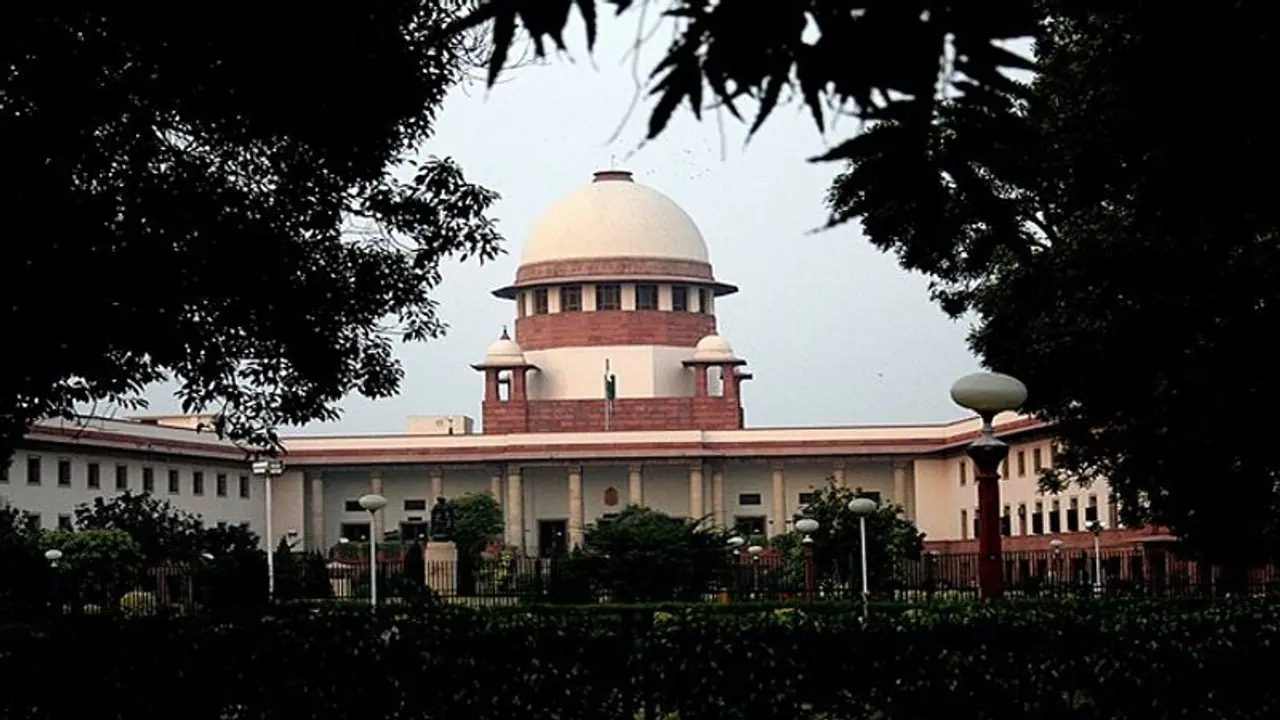The five-judge Constitution bench of the top court led by Chief Justice of India Uday Umesh Lalit delivered four separate judgments, with three upholding the 103rd Constitution amendment. CJI Lalit supported Justice D Ravindra Bhat's dissenting verdict, terming the law discriminatory and violative of basic structure.
The Supreme Court on Monday upheld the constitutional validity of a 10 per cent reservation in jobs and education for Economically Weaker Sections (EWS), with three out of the five judges of the Constitutional Bench ruling that the 103rd Constitution amendment was valid.

The five-judge Constitution bench of the top court led by Chief Justice of India Uday Umesh Lalit delivered the judgement. The bench, also comprising justices S Ravindra Bhat, Bela M Trivedi, Dinesh Maheshwari and J B Pardiwala, had on September 27 reserved the verdict on the legality of the reservation.
Also Read: 'F**k off' is offensive, sexually coloured phase and not used in Indian society: Delhi court
Four verdicts handed out
Justice Dinesh Maheshwari said reservation is an instrument of affirmative action by the State to ensure an all-inclusive approach. Reservation is an instrument not only for the inclusion of socially and educationally backwards classes.
'Reservation structured singularly on economic criteria does not violate the Constitution's basic structure. The exclusion of classes covered by 15(4), and 16(4) does not violate the equality code and does not damage the basic structure. Breach of the 50% ceiling limit is not inflexible. 103rd Constitution Amendment cannot be said to breach basic structure by providing reservation on economic criteria,' he said.
Justice JB Pardiwala and Justice Bela M Trivedi, too, found the EWS quota law valid. 'State has come out with an amendment for the advancement of EWS categories. It will be a reasonable classification to treat EWS as a separate class,' Justice Trivedi said.
Stating that the legislature must revisit the formula of the reservation to achieve a caste-less and classless society, Justice Trivedi said that the amendment needs to be treated as an affirmative action by the Parliament for the benefit of EWS class.
After 75 years of independence, we must revisit the system of reservation in the society's larger interests, Justice Trivedi further said.
Chief Justice UU Lalit supported Justice S Ravindra Bhat's dissenting verdict terming the law discriminatory and violative of basic structure.
Trial Background
The bench heard a bunch of petitions questioning the validity of the 103rd Constitution amendment, introduced Articles 15(6) and 16(6) into the Constitution of India, providing for 10 per cent reservation in employment and admissions to people other than Scheduled Caste, Scheduled Tribe and Other Backward Classes, and whose annual family income is under Rs 8 lakh.
The hearings lasted for six-and-half-days. Among the questions posed by the petitions include whether the amendment was violative of the Constitution's basic structure by allowing the State to make provisions like quota based on economic criteria or private unaided-institution admissions. The bench also had to examine if the reservations ate into the future prospects of the merit-based candidates.
The petitioners contended the EWS quota breached the 50 per cent ceiling fixed by the Supreme Court. However, the Centre countered by stating that the EWS quota does not erode the rights of the SC-ST and OBCs.
Who comes under the Economically Weaker Section?
* Individuals whose annual family income is under Rs 8 lakh.
* Individuals who have agricultural land of fewer than 5 acres.
* Individuals who have a house smaller than 1000 square feet.
* Individuals with a residential plot smaller than 100 yards in a municipality.
* Individuals with a residential plot smaller than 200 yards in a non-notified municipality.
Also Read: Nearly 50 million doses of Covaxin likely to expire early 2023 due to poor off take
